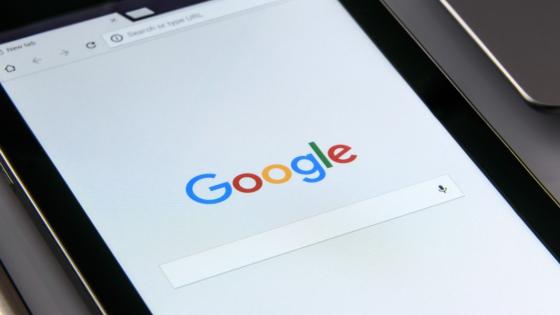In a recent Vox column, six antitrust consultants describe the European Commission’s case against Android, hailing it as a “milestone” of antitrust for the telecommunications industry (Caffarra et al. 2018). In fact, it is more of a millstone than a milestone.
The colloquial definition of “millstone” is a “heavy burden”, and of course the case is a burden for Google. But it is also a burden for the entire Android ecosystem of equipment manufacturers, carriers, app developers, and end users.
The consultants claim that “[t]he central concern in the Android case is that Google’s contracts with smartphone manufacturers made access to its Google Play app store contingent upon the manufacturers pre-installing Google’s search app and making Google Search the default search engine on their devices.”
That statement is not accurate. The Commission’s announcement (European Commission 2018) mentioned “default” in two places, one of which says Google Search is currently the default on Apple iPhones (true) and the other of which says Google Search is the default on the Google Chrome browser (also true). However, contrary to the consultants’ assertion, the Commission does not claim that Google required its search engine to be the default on Android devices.
Google offers the entire Android operating system and a variety of apps to original equipment manufacturers (OEMs) for free. OEM who want to pre-install the Play Store app were required to pre-install the Google Search App and the Chrome browser as well, but there was no obligation to make Google search the default for the device. OEMs could preload other search services and browsers and make them the default if they chose to do so.
This barter arrangement was good for both sides of the transaction: OEMs got the popular Play Store, and Google ensured that its users had at least one way of accessing Google search. This is critical for Google since it is the revenue from search ads that pays for the development and maintenance of the open source Android operating system. Unlike Apple which makes billions from hardware sales or Microsoft who generates significant revenues from licensing fees, Google offers the Android operating system and its popular apps to OEMs for free.
Caffarra et al. (2018) also complain that presence of Google’s mobile search app made it difficult for rival search engines to acquire a sufficient volume of queries to train their models. But all the search engine rivals had several years’ worth of data from their desktop search engines, so this is hardly credible.
The authors ask, “Is default status sufficiently important to ‘foreclose’ rival search engines?” They claim that it is, and point to the 2014 Yahoo-Mozilla agreement as evidence: “When Yahoo paid Mozilla for default status in Firefox 34, it saw a 20 percentage point increase in its share relative to users of Firefox 33.”
It is true that when Firefox made Yahoo the default search engine in 2014, its use initially increased. But as users realised what had happened, they switched back to their preferred search engine and Firefox search share declined. In 2017 Mozilla terminated its agreement with Yahoo two years ahead of time, saying in a lawsuit1 that “Yahoo Search consistently failed to retain users and search volume over time, reducing the potential revenue [for Mozilla] under the Strategic Agreement”. Apparently being a default is nowhere nearly as important as the consultants seem to think.
No one contests the claim that being a default may affect usage, other things being equal. But other things are never equal. For example, in the EU Google’s share of desktop search is high, so it is natural that this user choice carries over to mobile devices. Would you really want a different search engine on your desktop, laptop, tablet and mobile phone?
In fact, in countries where non-Google search engines have a large query share, pre-installation has little impact on usage. In Korea, the first thing many users do when they purchase a mobile phone is to download Korean language search engines such as Daum and Naver. In the US, Bing is the default search engine in the Windows Edge browser on the desktop, but many Windows users download and use other browsers and other search engines. And in Russia, Yandex is a highly popular search engine and if it is not pre-installed on their mobile phone, many people download it. (By the way, the consultants acknowledge that they worked for Yandex in cases involving both the Russian antitrust authorities and the European Commission.)
Users expect a ready-to-run experience when they turn on their new laptop or mobile phone, so pre-installation of apps is the norm. Apple pre-installs39 apps, all of which are from Apple; most Android phones have 11 Google apps pre-installed and most OEMs install dozens more of their own apps, or apps from developers that have paid the OEM to pre-install.
As a matter of fact, Google went out of the way to offer users choice: the Mobile Application Distribution Agreement (MADA) did not prevent OEMs from pre-loading rival services and displaying them prominently. Furthermore, users could easily hide pre-installed applications and download rival apps in a matter of seconds. Last year mobile browsers such as Opera Mini and Firefox were downloaded more than 100 million timesfrom the Play Store (Pichai 2018).
The authors’ focus on “general purpose search engines” like Google and Bing is also misplaced. As far as the economics is concerned, there are two sorts of search: commercial and non-commercial. There is no revenue from “non-commercial search” virtually by definition. All the revenue comes from ad clicks associated with “commercial search”. This is no different than ad-supported media like TV, radio, newspapers, and magazines – the ads pay for content in these traditional media, just as ads pay for the production of “general search results” in a search engine.
Nowadays many mobile users search for products, restaurants, hotels, and other commercial services using specialised applications, bypassing general purpose search engines all together. General purpose search engines don’t just compete against each other, they also compete with these specialised apps for commercial search – and commercial search is the only kind of search that makes money. It is because of this intense competition that users have access to a wide variety of free services and a rich set of ways to access those services.
References
Caffarra, C, O Latham, M Bennett, F Etro, P Régibeau, R Stillman (2018), “Google Android: European ‘techlash’ or milestone in antitrust enforcement?”, VoxEU.org, 27 July.
European Commission (2018), “Antitrust: Commission fines Google €4.34 billion for illegal practices regarding Android mobile devices to strengthen dominance of Google's search engine”, press release, 18 July.
Pichai, S (2018), “Android has created more choice, not less”, Google in Europe, 18 July.
Endnotes
[1 ] See https://searchengineland.com/yahoo-parent-sues-mozilla-replacing-google-...



